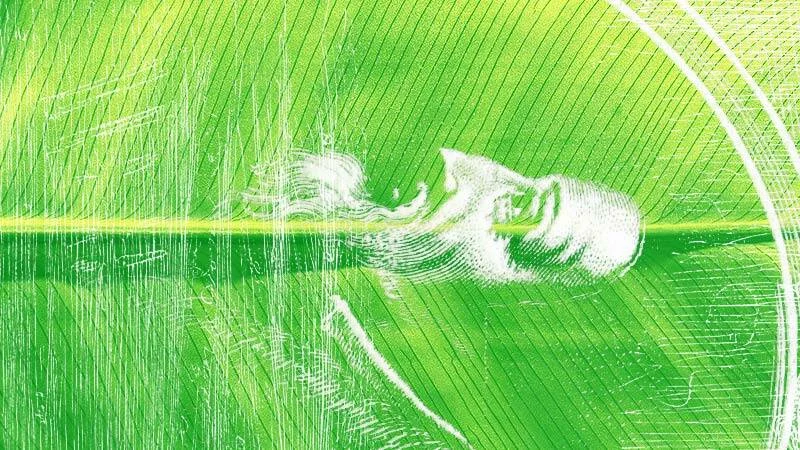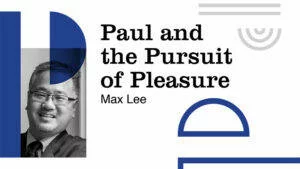In Reformed Theology and Evolutionary Theology, Gijsbert van den Brink provides readers with an insightful tour of the most important theological implications and controversies related to evolutionary theory while also providing the first book length treatment of these issues from a distinctively Reformed perspective since the nineteenth century.
In the first three chapters of the book, van den Brink lays out the framework within which he explores these implications and controversies. In Chapters One and Two he explains his conception of a Reformed theological stance, and of the theory of evolution. And in Chapter Three he argues for a particular approach to navigating the claims of Scripture with what might sometimes appear to be conflicting claims that emerge from the sciences.
In Chapter Four, Van Den Brink turns to the question of how the “history of evolutionary evil can be reconciled with the life-giving goodness and love of the God Christians have preeminently come to know through Jesus Christ.” Over the last twenty years or so there has been a significant quantity of new work on this question published by philosophers and theologians, and most of the chapter is devoted to giving the reader a clear and thoughtful summary and critique of much of that work. The chapter concludes with van den Brink’s own distinctively Reformed response to the question.
Which Process? Whose Problem?
Before commenting on the arguments of the chapter, it will be valuable to draw a few distinctions that are often not made when discussing this topic (and I confess to having failed to make these distinctions clear in my own earlier work). First, the fact that evolutionary processes have brought about the complexity and diversity of life over four-plus billion years on earth is the cause of many types of evolutionary evil, not just one: the nature, extent, and duration of animal pain and suffering, the origins and/or biological utility of senescence and death, the extinction of numerous species as well as the multiple major extinction events in biological history, the causes and consequences of predation, and more besides. Most accounts of evolutionary evil seek to provide “an account” of “evolutionary evil” and it is unlikely that these diverse phenomena admit of a single explanation.Most accounts of evolutionary evil seek to provide “an account” of “evolutionary evil” and it is unlikely that these diverse phenomena admit of a single explanation. For example, embodied organisms might require a physiological mechanism that registers and responds to noxious stimuli much as our current systems do, and hypothesize that this justifies animal pain. But this does not explain senescence, death, extinction, etc. So when such accounts are offered, readers should expect to be shown what aspect of “evolutionary evil” those accounts aim to address.
Second, it is important for those who “address the problem of evolutionary evil” to clarify just what “problem” they are aiming to solve. Here I mean not, as above, by identifying the target phenomenon to be explained, but rather by identifying what sort of problem these phenomena present. Failing to provide this clarity sometimes leads those who discuss the topic to talk past one another, as often happens when philosophers and theologians comment on each other’s work in this space. While any generalization will fail to do justice to the differences in the work that philosophers and theologians undertake when it comes to addressing the reality of evil, the two disciplines are often engaging different sorts of problems. Philosophers addressing the problem of evil are typically addressing an epistemological problem: how can belief in God be rationally maintained in the face of what looks like strong evidence (i.e., evil) that no God exists? Work aimed at addressing this problem often takes the form of trying to unearth morally justifying reasons for God permitting evil, where these explanations are true, or probably true, or true for all we know.
Theologians addressing the existence of evil, on the other hand, are generally engaging a quite different task, namely, helping us to grapple with the question of how we can see, understand, and experience the lovingkindness of God in the face of lived or witnessed evil. This is an important task that not only provides us with a richer understanding of God’s activity, providence, and nature, but can further supply comfort to those victimized by evil. Philosophers sometimes wave off this task—one some regard as “merely” addressing the “pastoral” or “existential” problem of evil. However, the “pastoral” problem is as real and important as the “epistemic” problem. So, in the same way that it is important for those working in this space to articulate the target phenomenon their account aims to explain, it is equally important to explain exactly what problem is constituted by the target phenomenon.
Three Responses to Evolutionary Evil
In the final section of Chapter Four, van den Brink lays out his own position on the problem(s) of evolutionary evil. Rather than giving us a single preferred account, he instead provides the reader with three options. The first option is to deny the reality of evil that appears to arise from biological or evolutionary processes (p. 130). Here he quotes approvingly from the work of David Snoke who suggests that predation, for example, might not be evil after all, but rather a manifestation of “the power and wrath of God.” In addition, Snoke suggests that our normative intuitions might not be supported theologically since, for example, Scripture “does not say anywhere that [animal death and suffering] are bad.”Van den Brink lays out his own position on the problem(s) of evolutionary evil. Rather than giving us a single preferred account, he instead provides the reader with three options. The second option is to rely on one or more of the standard theodicies or defenses deployed with respect to natural evil in response to evolutionary evil (pp. 131–32). “If,” writes van den Brink, “[these theodicies/defenses] work with regard to natural evil in general, why would they not work for evolutionary evil?” The third option is to adopt the posture of the “skeptical theist” who argues that given our epistemic limitations we are not properly situated to draw any conclusions about whether the evils that we find in the world are necessary conditions for outweighing goods, and so are in no position to see the existence of evil as being in tension with the existence or goodness of God (p. 134).
While these three strands of response are found in the final section of the chapter, they are not presented, as I have done here, as various options that one taking a Reformed stance might adopt. But clearly one cannot consistently adopt all of these approaches since, for example, the first option presumes that we are in a good epistemic position to form judgments about goods and evils with regard to animal life and suffering (in light of, for example, the affirmations (or silence) of Scripture), whereas the third option presumes that we are in no such position. In addition, while van den Brink does invoke a number of different problems that evolution raises (death, suffering, predation, etc.) he does not clearly tie the solutions offered to the specific problems. In what remains I will offer some brief comments on these three responses.
Assessing van den Brink’s Responses
The third response (skeptical theism) presumes certain limits in our ability to know either the full range of goods and evils that might justify permitting some evil or the causal connections between permitted evils and possible goods. In stark contrast, the first response (following Snoke) requires that we become full-fledged skeptics concerning our judgments in these matters. On this view, we do not merely admit to certain forms of ignorance about normative matters, we positively reject normative intuitions that seem obvious. Here we cannot look at the suffering of the fawn writhing in the fire and trust our intuition that this is an evil (i.e., a state of affairs or event that the world would be better off without were its permission not a necessary condition for greater goods).It is no longer clear that when we declare God good within this framework we are attributing to God something that suggests excellence, nobility, and worship-worthiness. For many, the price of this view will be too high. There are strongly presuppositionalist strands of Reformed thought that would look favorably on such a posture. But taking this approach undermines not only our conception of what counts as an evil, but also what counts as a good. And so it is no longer clear that when we declare God good within this framework we are attributing to God something that suggests excellence, nobility, and worship-worthiness. For many, the price of this view will be too high.
With regard to the second response, the key move suggested here is too quick. One of the things that seems to make the problem of evolutionary evil(s) so challenging is that the standard theodicies and defenses of natural evil do not seem to work here. Take, for example, the theodicy that argues that lawful regularities in nature permit certain evils and that this is a necessary condition for some greater good. What greater good is that? Most often the greater good is the obtaining of conditions that make morally significant free will possible (e.g., to engage in intentional action it has to be the case that the world behaves reliably in response to my intentional bodily movements). But that explanation will not help explain evils that pre-date the arrival of beings with morally significant freedom. So that theodicy does not work here. The upshot is that we cannot simply assume that these natural law theodicies are going to help when it comes to evolutionary evils. Instead, one will have to trace out that case with care and in detail.
With regard to the third, skeptical theist, response, I find this response a persuasive reply to one type of problem of evolutionary evil, namely, the problem raised by the atheist mounting the evidential argument from evil. But note first that this is not a full-orbed response to the problem(s) of evolutionary evil since it fails to satisfactorily address the pastoral problem mentioned earlier. Additionally, it gives us less than what we should hope for or aspire to in the project of theodicy. It is one thing to show an interlocutor that their argument for atheism from evil is based on a faulty inference. But if one can also show that interlocutor that there are plausible theistic explanations for the existence of evil, that would be preferable. When the doctor drops the needle on the floor and tells you that there is no danger since she “does not see any germs” on the needle, it is a good first step to explain that the inference is invalid: the germs would not be visible if there; so not seeing them is not relevant evidence. That is the approach of the skeptical theist. But how much more effective it would be to hand the doctor a microscope so that she can see the microbes on the needle. That is the approach of those who work to develop robust theodicies: they want the atheist not merely to see their reasoning error, but to see that the position of the theist is at least reasonable if not outright plausible. As a result, while the skeptical theist response might be a part of an overall satisfying response to the problems of evolutionary evil, we should regard it as only a start.








Comments
Be the first one to make a comment!